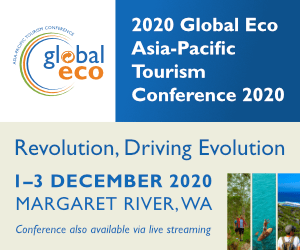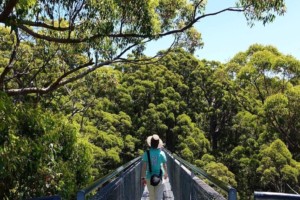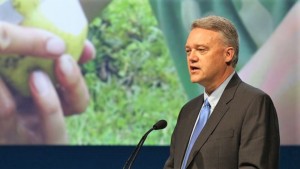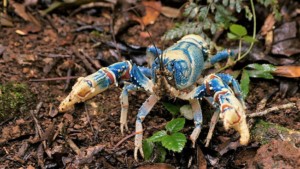Regenerative ecotourism: Asking questions is the best place to start
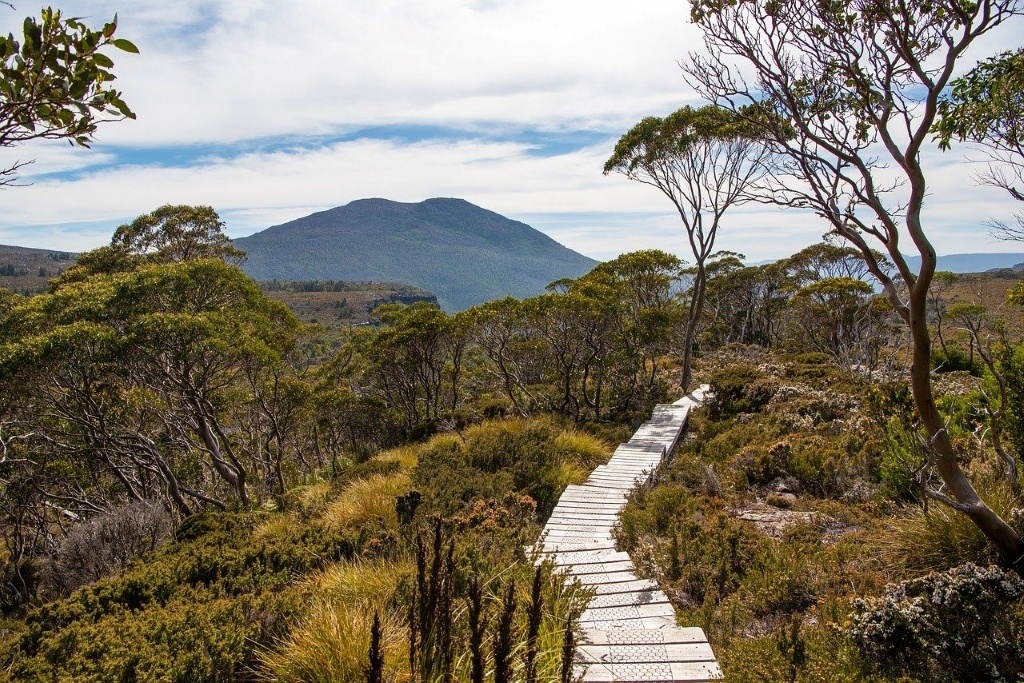
“Asking questions is the best place to start,” Anna Pollock said during the afternoon of the third and final day of the 2020 Global Eco Asia-Pacific Tourism Conference. And she’s right, of course, yet no-one got the opportunity to ask her any!
Ms Pollock may be right about the benefit of questions, but she’s obviously not literally correct when she says the SARS-CoV‑2 virus is a “messenger”. (The more robot-rational among us would even pooh-pooh the figurative notion.) However, it is true that due to COVID-19 a great many people — all at once and all over the world — have been reminded that:
- Uncertainty is a fact of life;
- Our vulnerability and interdependence is real;
- There are limits [emphasis is Ms Pollock’s];
- Other existential challenges persist; and
- We’re not helpless victims [emphasis is your correspondent’s].
As founder of Conscious.Travel, Anna Pollock travels around (or did, pre-COVID) doing a lot of talking to tourism audiences about “regeneration”. Yet she would prefer to use the words “flourishing” or “thriving”.
Ms Pollock says there’s a journey we must all embark upon if we are to move from degenerative business-as-usual to regenerative flourishing and thriving. The route is via notions of “green”, “sustainable”, and “restorative” in that order. It’s treacherous, though. Be sure to pack a change of mindset and a new way of thinking, for they are necessary if we are to make it across the gaping chasm between “sustainable” and “restorative”.
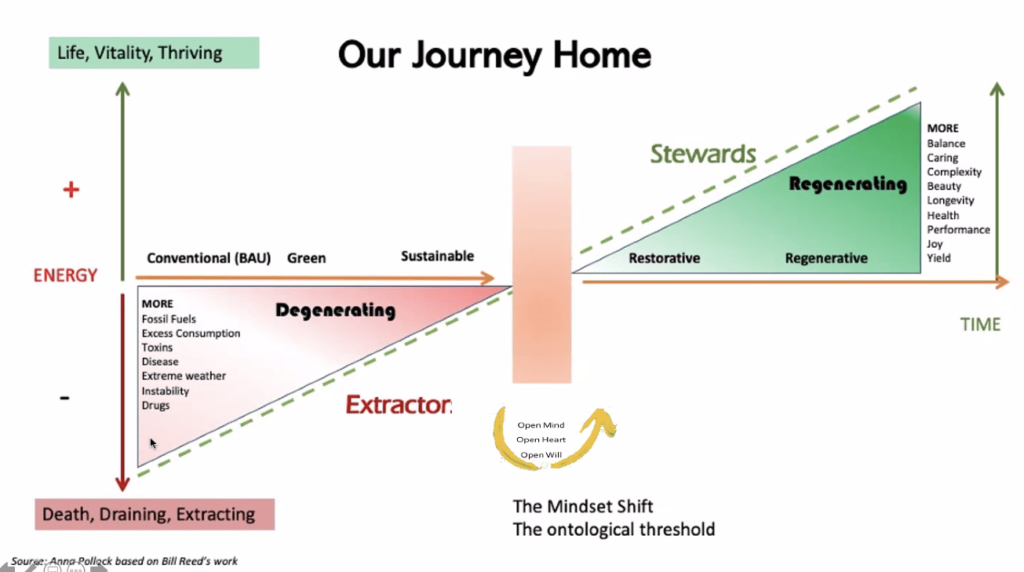
Regeneration involves remembering; putting pieces back together. Remembering includes “Earth wisdom”, which Ms Pollock credits Indigenous peoples with having. And while her notion of regeneration is similar to the Maori word “Mauri”, which means “life force”, it should not be thought of as a noun. It’s a verb.
Ms Pollock is quite firm about this, so pay attention: “Regeneration” is not a trendy buzzword; nor is it “sustainability on steroids”; nor is it simply “doing more good”; and it certainly cannot be incremental (presumably because there’s that chasm we might fall into if we take baby steps). Regeneration, according to Ms Pollock, is about becoming one with the whole living system. We must develop the innate capability of a living system to self-organise, thrive, and evolve.
Cue lots of metaphors: We must change our lens. We must transition from dead machine to living system; assembly line to community; silos and hierarchies to one collaborative network. Like a forest. Ego, eco, seva. Community is to regenerative tourism what soil is to regenerative agriculture …
Breathe!
Living systems are self-organising, she says. They create the conditions for other life. They are adaptable and balanced; productive to the point of abundance, yet they produce zero waste. They are unique yet they continually evolve.
And she asks, as if at the start: How do we put the heart and soul back into tourism? How do we stop extracting wealth and start generating “wellth”? 😬 How do we stop asking “What can country do for tourism?” and start asking “What can tourism do for country?”
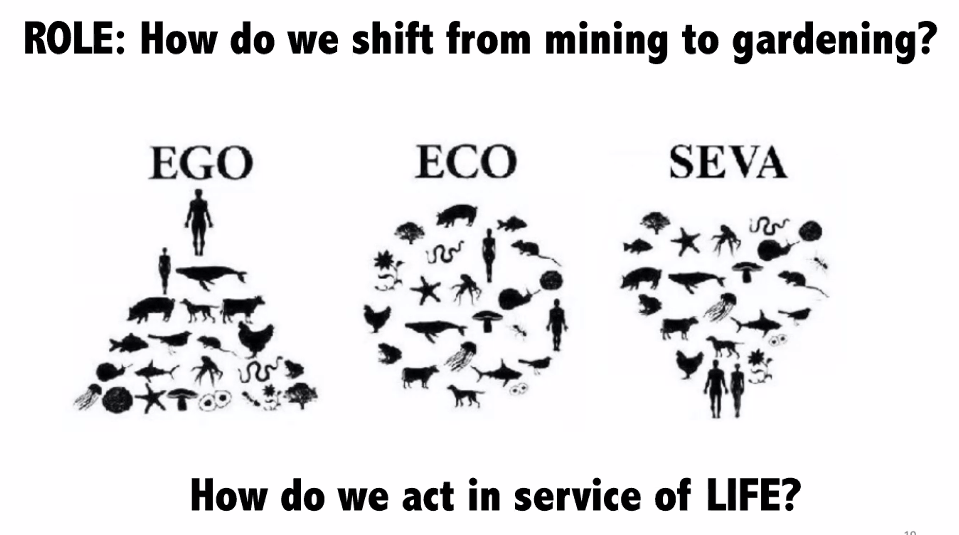
So many questions …
Moving right along … There were a lot of wide-ranging quick-fire presentations during the third and final day of the 2020 Global Eco Asia-Pacific Tourism Conference. Here are a few highlights. Again, same as yesterday, these are only “highlights” in terms of your correspondent being alert enough to take notes that might be of use, interest, or amusement to you. There were talks you really had to be tuned in for and there were those your correspondent simply missed … perhaps because he’s not a living system else he would be perfectly self-organised and productive to the point of abundance while producing zero waste!
‘Ecotourism is Aboriginal tourism’
Your correspondent found himself doing a lot of listening and not a lot of note-taking during the presentations around opportunities for Australia’s first peoples; for surely it is they, with their oft-cited connection with country, who are the Australians best-placed to lead and innovate in the ecotourism space. And indeed it was a joyful, exciting, and positive series of talks.
Jeff McAlister of the Queensland Department of Tourism, Innovation & Sport tipped his hat at Western Australia for being a leader in this space. He was followed by fellow Queenslander Cameron Costello, chief of the Quandamooka Yoolooburrabee Aboriginal Corporation (QYAC), which represents Quandamooka country near Brisbane. Mr Costello showed how QYAC is working with local governments, universities, and indigenous and non-indigenous stakeholders to develop, support, and promote place-based tourism products, enterprises, training, and employment pathways.
Western Australia’s Indigenous tourism industry was represented by Rosie Sandover and Rebecca Sampi of Kingfisher Tours, which operates in the Kimberley region. Present elder Ms Sampi views herself as a rock of her community and would encourage young Indigenous women to give the tourism industry a go. She reckons travel & tourism ticks a few boxes as it provides opportunities to:
- Connect/reconnect to country;
- Communicate its significance to non-indigeneous folks;
- Get a job; and eventually
- Start a business.
“Ecotourism is Aboriginal tourism,” Robert Taylor, CEO of the Western Australian Indigenous Tourism Operators Council (WAITOC) said during his presentation, providing the perfect sub-heading for this segment.
He also expressed his pride at what WAITOC has been able to achieve. COVID hit hard in 2020, of course, including the cancellation of a global Indigenous tourism event that was to be hosted in Perth. However, to help keep Indigenous tour operators busy, WAITOC targeted its promotions at WA intrastate travellers. This included a series of fun “Postcards from our backyard” videos that were well received.
Abiotic, Biotic, Cultural, D, E, F, Geotourism, Holistic
The geotourism niche got a slot this morning, with Patrick James of the University of South Australia and Angus M Robinson, managing director of Leisure Solutions discussing the development of an Australian national geotourism strategy. According to Mr Robinson, geotourism is ABC: Abiotic, Biotic, and Cultural. It’s also “holistic”. The new national strategy seeks to create a united voice for geotourism in order to more effectively work with specialist groups, governments, natural & cultural heritage specialists, and local communities. Prof James demonstrated an augmented and virtual reality product of the Wicked Witchelina Dunes & Wildflowers Geotour in South Australia.
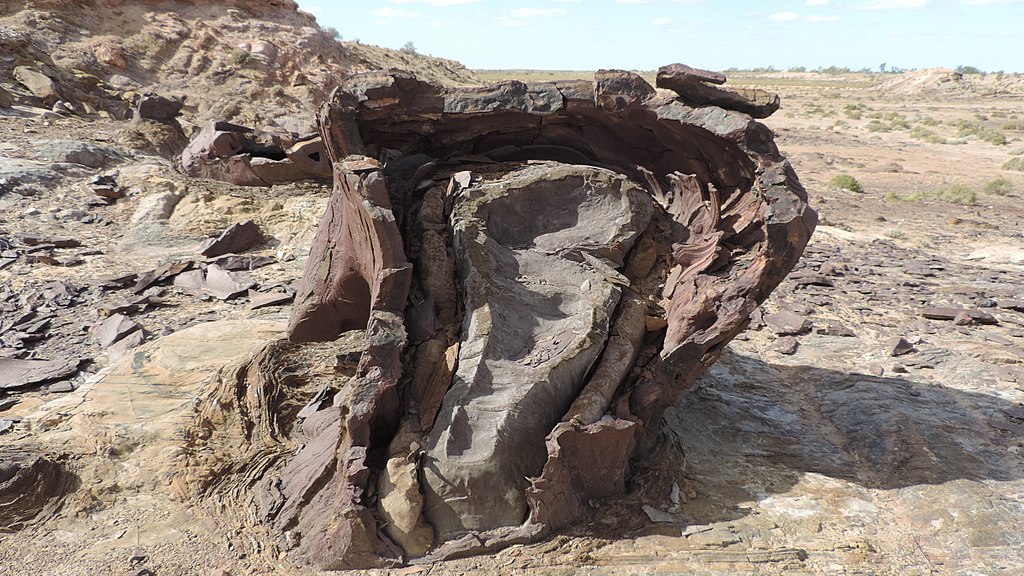
‘It’s not ecotourism’
Tom Allen, campaign manager at the Wilderness Society of Tasmania, is wild about Tassie’s wilderness but mad about state government plans to privatise slices of it for tourism development. Tasmania’s Wilderness World Heritage Area is one of the last expanses of temperate wilderness. It ticks off a unique combination of World Heritage criteria, which Mr Allen reckons makes Tassie’s WHA the “best” on Earth. Protecting it is in the long-term interest of Tasmania and Tassie tourism, Mr Allen asserts.
Despite wilderness being the biggest drawcard for tourism in Tasmania, and despite all market segments surveyed ranking it a top attraction, official state government tourism policy is volume-focused with no mention of wilderness at all. According to Mr Allen, the government plans to “unlock the potential of parks” through private high-end tourism developments, such as a luxury resort on Halls Island, Lake Malbena in the Walls of Jerusalem National Park. Access to the property would be via helicopter. Any new project degrades the “wilderness character” of a place, he reckons, and this particular project targeted at the very wealthy is highly inappropriate and “lacks social licence”.
And “it’s not ecotourism”.
Wildlife tourism best practices
In researching a report commissioned by UNWTO and Chimelong about good practices in wildlife tourism in Asia & the Pacific, Dr Ronda Green, chair of Wildlife Tourism Australia, found lots of good examples in the region. The best included Borneo Eco Lodge (Malaysia); Lady Elliot Island (Australia); Rimba Orangutan Lodge (Indonesia); Wildlife of the Mongolian Steppe (Mongolia); and Aarunya Tour to Sinharaja (Sri Lanka). Moreover Dr Green encountered lots of well-intended operations willing and able to do better with the right information, guidance, and support.
Common problems faced by wildlife tourism operations in Asia Pacific include:
- Guests’ expectations for standards of luxury or service often exceed what the reality is (manage them);
- Poor infrastructure (roads, telecommunications, internet etc);
- Real and perceived safety concerns;
- Language (translations of interpretive material; communications with staff);
- Lack of government interest in the environment;
- Competition with low-standard wildlife operations (e.g. those that allow feeding;
- Balancing the needs of visitors and locals.
Gaps in the market:
- Relative lack of botanical tours;
- Lack of online promotion;
- Lack of safari-style products in the region;
- Opportunities to engage people in citizen science;
- Certain segments are under-served and/or under-targeted, such as school groups, seniors, and the differently-abled.
Measuring sticks
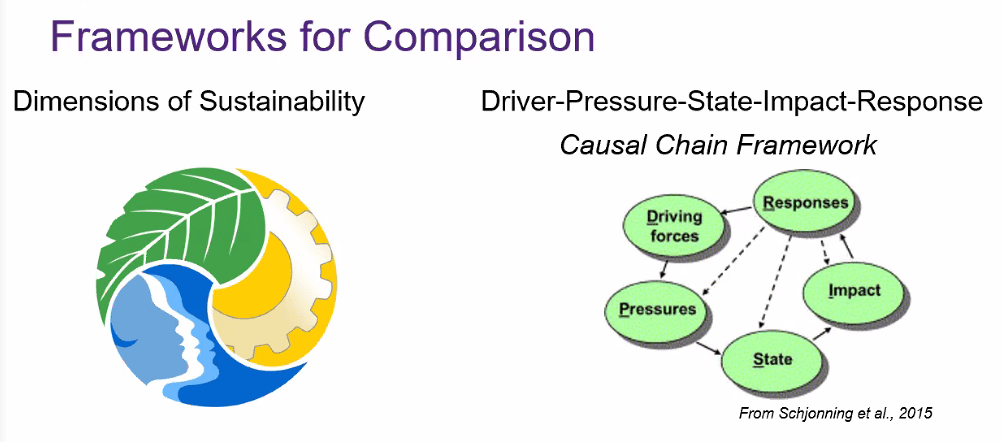
Cameron Balch, a Masters student at the University of Queensland, explored the question of why there are so many tools for measuring and certifying ecotourism and sustainable tourism; their overlap, anomalies, and opportunities. Their proliferation is understandable given their different scopes, priorities, locations, geographies, organisations, underlying motivations,et cetera. Mr Balch studied a sample of 17 different eco- and/or sustainable indicator sets, including Ecotourism Australia’s, using two frameworks for comparison: Dimensions of sustainability and the driver-pressure-state-impact-response (DPSIR) causal chain framework.
Curiously, Ecotourism Australia’s is the only set with education indicators yet is also the only one without economic indicators. And while it is the only one to include impact indicators it has very few driver and pressure indicators. Both these curiosities means EA’s set of measures is relatively unique; while most of the others studied were relatively similar to each other. In conclusion, Mr Balch said that the industry as a whole needed to find more common ground around minimum standards for eco- and sustainable tourism.
Sustainable marketing
Sustainable destinations and experiences deserve “more sustainable marketing”, according to Carl Solomon, director at Destination Marketing Store. The pile-on of problems in 2020 has, he reckons:
- Influenced motivations, behaviours, and barriers to travel;
- Increased the importance of trusted recommendations (friends and family);
- Increased demand for escapes from the city and nature-based/ecotourism products; and
- Increased demand for hassle-free experiences.
Australians have traditionally been less likely to book domestic travel unless it’s off the beaten track, but they do book overseas experiences. The opportunity during the shutdown of international tourism has been to capture an Australian market that would have normally gone overseas.
In the “new normal”, Mr Solomon reckons travel & tourism providers should:
- Offer more personalised products;
- Provide a stronger connection to people and place;
- Use multiple channels of distribution;
- Adapt to and leverage digital innovation
They should also:
- Position community at the centre of everything (with visiting friends and relatives and then everyone else in concentric circles around that local core);
- Create more remarkable content (with the right focus; the right audience; and the right channels)
- Reach — inspire — engage — connect with audiences, and repeat.
The 2020 Global Eco Asia-Pacific Tourism Conference took place December 1 – 3, 2020 in Margaret River, Western Australia. Kudos to the organisers and MCs for their superb time management, despite the technical challenges of teleconferencing with so many speakers; keeping speakers to their time limits and hitting every time target within a few minutes at most. (Because timekeeping can be an issue at industry events.)
Featured image (top of post): Overland track, Tasmania Wilderness. Image by pen_ash (CC0) via Pixabay.


